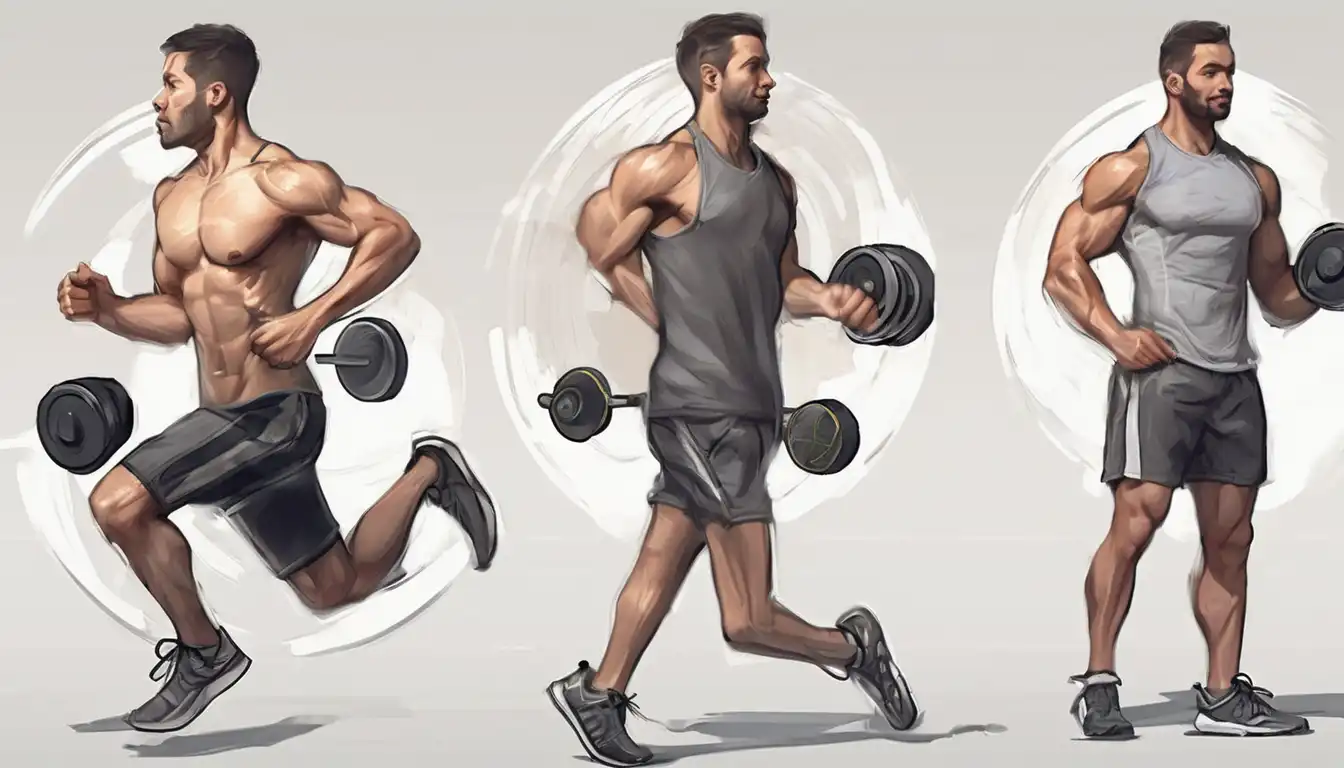Your First Steps to Building a Sustainable Fitness Plan
Starting a fitness routine can feel overwhelming, but it's one of the most rewarding decisions you'll ever make for your health and wellbeing. Whether you're looking to lose weight, build strength, or simply feel more energetic, this comprehensive guide will walk you through everything you need to know to begin your fitness journey with confidence.
Why Starting a Fitness Routine Matters
Regular exercise offers countless benefits beyond just physical appearance. Consistent physical activity can boost your mood, improve sleep quality, reduce stress, and lower your risk of chronic diseases. Many beginners find that after just a few weeks of consistent exercise, they experience increased energy levels and mental clarity that make the effort worthwhile.
Assessing Your Current Fitness Level
Before diving into any workout program, it's crucial to honestly assess your current fitness level. Consider factors like your endurance, strength, flexibility, and any physical limitations. If you haven't exercised regularly in years, start with low-impact activities and gradually increase intensity. Remember that everyone starts somewhere, and progress is more important than perfection.
Setting Realistic Fitness Goals
Effective goal-setting is the foundation of any successful fitness routine. Instead of vague objectives like "get fit," create SMART goals: Specific, Measurable, Achievable, Relevant, and Time-bound. For example, "I will walk 30 minutes daily, five days per week for the next month" is much more actionable than a general fitness aspiration.
Choosing the Right Type of Exercise
Select activities you genuinely enjoy to increase your chances of sticking with them long-term. Consider incorporating these three essential components:
- Cardiovascular exercise: Walking, jogging, cycling, or swimming improve heart health
- Strength training: Bodyweight exercises or light weights build muscle and bone density
- Flexibility work: Stretching or yoga enhances mobility and prevents injury
Creating Your Weekly Workout Schedule
Consistency matters more than intensity when you're starting out. Aim for 3-5 workout sessions per week, allowing for rest days in between. A balanced beginner schedule might include:
- Monday: 30-minute brisk walk
- Wednesday: Bodyweight strength training (squats, push-ups, planks)
- Friday: 30-minute cycling or swimming
- Sunday: Light stretching or yoga session
Essential Equipment for Beginners
You don't need an expensive gym membership to start your fitness journey. Basic equipment can include comfortable athletic shoes, workout clothes, a water bottle, and perhaps a yoga mat. As you progress, you might consider resistance bands or light dumbbells, but these aren't necessary for getting started.
Proper Warm-up and Cool-down Techniques
Never skip your warm-up and cool-down periods. A proper warm-up (5-10 minutes of light cardio) prepares your muscles for exercise and reduces injury risk. Similarly, cooling down with gentle stretching helps your body recover and improves flexibility over time.
Nutrition and Hydration Basics
Exercise and nutrition work together to help you achieve your fitness goals. Focus on balanced meals with lean proteins, complex carbohydrates, healthy fats, and plenty of fruits and vegetables. Hydration is equally important—drink water before, during, and after your workouts to maintain optimal performance.
Tracking Your Progress Effectively
Monitoring your improvements helps maintain motivation. Consider keeping a fitness journal or using a tracking app to record your workouts, measurements, and how you feel after each session. Celebrate small victories like completing an extra repetition or walking a longer distance than before.
Common Beginner Mistakes to Avoid
Many fitness newcomers make similar errors that can hinder progress or lead to injury. Avoid these common pitfalls:
- Starting too intensely and burning out quickly
- Comparing your progress to others
- Neglecting proper form in exercises
- Skipping rest days when your body needs recovery
- Setting unrealistic expectations for rapid results
Staying Motivated Through Challenges
Motivation naturally fluctuates, so having strategies to stay committed is essential. Find a workout buddy for accountability, vary your routine to prevent boredom, reward yourself for consistency, and focus on how exercise makes you feel rather than just how it makes you look.
When to Seek Professional Guidance
If you have specific health concerns, injuries, or ambitious fitness goals, consider consulting with a certified personal trainer or physical therapist. They can provide personalized guidance, ensure you're using proper form, and help you avoid injuries while maximizing results.
Adapting Your Routine Over Time
As your fitness level improves, your routine should evolve too. Gradually increase intensity, duration, or frequency every 4-6 weeks to continue challenging your body. This principle of progressive overload ensures continuous improvement and prevents plateaus in your fitness journey.
Building a Lifelong Fitness Habit
The ultimate goal isn't just starting a fitness routine—it's making exercise a sustainable part of your lifestyle. Focus on developing habits rather than pursuing short-term fixes. Remember that consistency over time yields far better results than periodic intense efforts followed by long breaks.
Starting your fitness journey might feel daunting initially, but every expert was once a beginner. Be patient with yourself, celebrate small successes, and trust the process. With the right approach and mindset, you'll soon discover that regular exercise becomes something you look forward to rather than something you have to do. Your future self will thank you for taking this important step toward better health and vitality.
